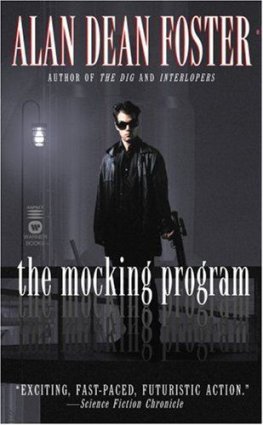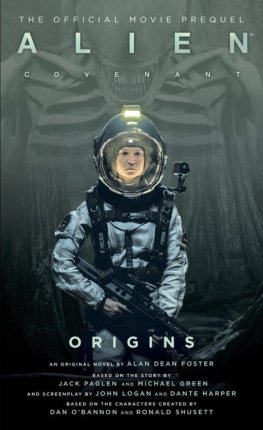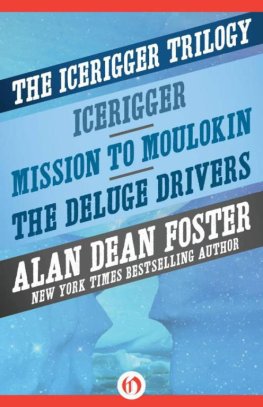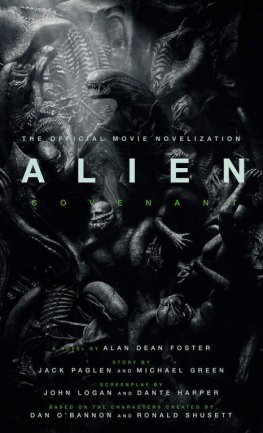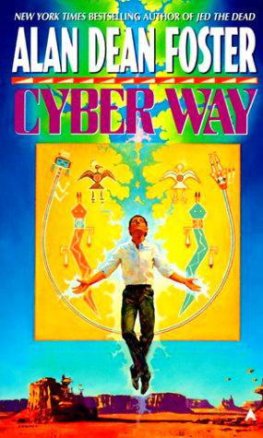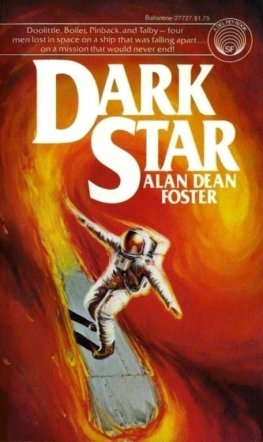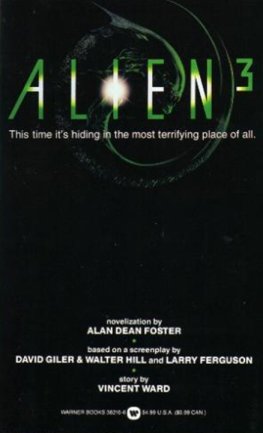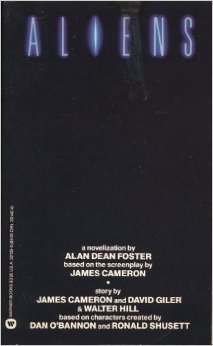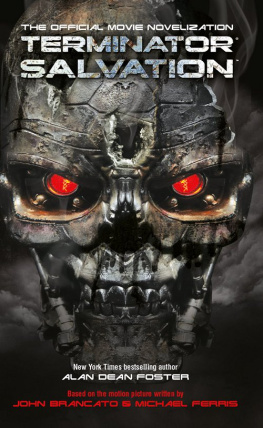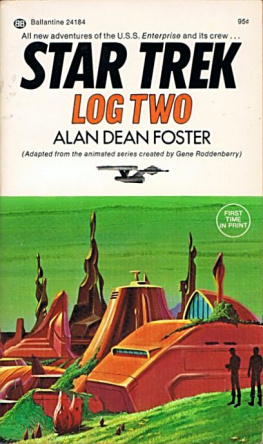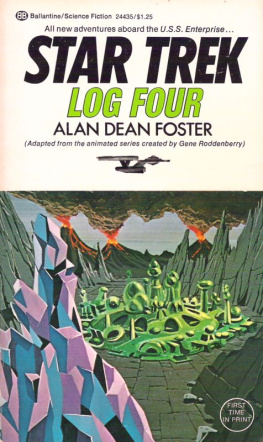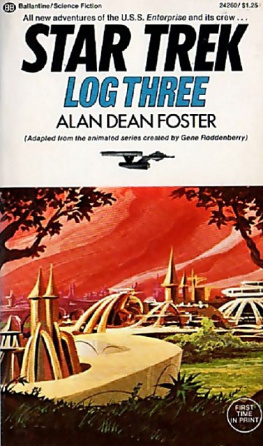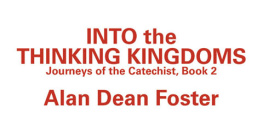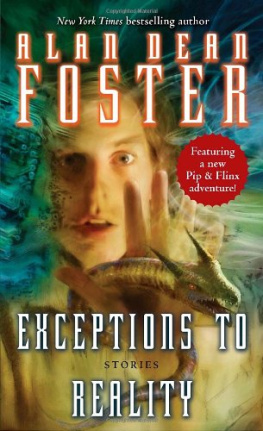Alan Foster - The Metrognome and Other Stories
Here you can read online Alan Foster - The Metrognome and Other Stories full text of the book (entire story) in english for free. Download pdf and epub, get meaning, cover and reviews about this ebook. genre: Science fiction. Description of the work, (preface) as well as reviews are available. Best literature library LitArk.com created for fans of good reading and offers a wide selection of genres:
Romance novel
Science fiction
Adventure
Detective
Science
History
Home and family
Prose
Art
Politics
Computer
Non-fiction
Religion
Business
Children
Humor
Choose a favorite category and find really read worthwhile books. Enjoy immersion in the world of imagination, feel the emotions of the characters or learn something new for yourself, make an fascinating discovery.

- Book:The Metrognome and Other Stories
- Author:
- Genre:
- Rating:4 / 5
- Favourites:Add to favourites
- Your mark:
- 80
- 1
- 2
- 3
- 4
- 5
The Metrognome and Other Stories: summary, description and annotation
We offer to read an annotation, description, summary or preface (depends on what the author of the book "The Metrognome and Other Stories" wrote himself). If you haven't found the necessary information about the book — write in the comments, we will try to find it.
The Metrognome and Other Stories — read online for free the complete book (whole text) full work
Below is the text of the book, divided by pages. System saving the place of the last page read, allows you to conveniently read the book "The Metrognome and Other Stories" online for free, without having to search again every time where you left off. Put a bookmark, and you can go to the page where you finished reading at any time.
Font size:
Interval:
Bookmark:
THE METROGNOME AND OTHER STORIES
Alan Dean Foster
INTRODUCTION
GYRO GEARLOOSE, the ultimate inventor created by the immortal Carl Barks, one day invents a machine that can answer any question. Deciding to start it out with something simple, he points to a small bird outside his window and inquires of the device, "Why is that bird singing?" Whereupon the machine replies, "Oh, maybe he's glad, maybe he's sad, maybe he's a little mad. "
The great Gearloose was not expecting lack of precision. He promptly embarks on a series of attempts to best his own creation by learning exactly why the bird is singing. Repeatedly frustrated, he is forced to invent an entirely new machine to translate the bird's voice so he can ask it the question directly. At which point it declaims, "Maybe I'm sad, maybe I'm glad, maybe I'm a little mad."
Which is not a bad reply for an author to give when asked why one writes short stories.
There's certainly no practical reason to do so. Only a handful of writers can make any kind of living from writing short science fiction today. The rewards are in novels. The financial rewards, that is. There are other kinds.
When readers get together, they seem to spend most of their time discussing novels. Short fiction rates a mention only in passing, if at all. But when they're alone and reminiscing, I have this hunch it might be an author's short fiction that they remember most fondly. Something about a short piece's very brevity helps it linger in the mind.
Ideas tend to get lost in a novel, overwhelmed by character or drained by the need to support the plot. In a short story the idea is paramount, not the hero or alien menace. The idea is the story. Brevity lets the author concentrate on the idea to the exclusion of all else. Nor are there considerations of length to worry about. A novel must be a certain length to be acceptable. In short fiction the development of the idea determines the length.
That's why it's so difficult to create real characters in a short tale, where the luxury of time is not present. Where the idea is paramount, the writer must accomplish the task of character description quickly. There's no time for idle chatter or a profusion of florid adjectives. In one story Eric Frank Russell identifies a minor character thus: "He was a real ladies' man; big, handsome, stupid." There you have character created, described, slotted, and dismissed in less than ten words. Not an easy trick to perform. It takes work.
There's something unmatchably satisfying about a good short story. It offers rewards a novel can't duplicate. That's why we order large steaks and small chocolates.' The steak may be more nourishing but not necessarily more rewarding. Sometimes we just crave chocolate.
Just as a writer will find himself compelled to write short fiction even though it may not be practical to do so. I think it makes short stories a purer form of storytelling. Odds are, any short fiction you read was written not because the author thought he or she could make a lot of money from it but because it was a story he or she really wanted to tell or a story that forced itself to be told.
Short fiction is also the abode of today's most interesting fiction. In ten or twenty pages the writer can play without concern, can experiment or try something utterly absurd. Conformity and familiarity are not vital to the success of a four-thousand-word story. A good idea is. If the tale works, well and good. If not, the author has had fun trying. Writers of novels turn to the short form for recreation. I think you're also much more likely to find that an author has written short stories for himself, with less of an eye on potential markets, than is the case with novels. In the end, of course, the readers judge for themselves.
A collection is usually about the same length as a novel. The Metrognome and Other Stories contains tales designed to frighten, to make the reader laugh, to make one wonder or think or just smile. Few novels permit such versatility in so few pages. It's one time when the writer hopes that the whole is not greater than the sum of its parts.
ALAN DEAN FOSTER
Prescott, Arizona
OPERATOR ASSISTED CALLS ARE CHARGED AT A HIGHER RATE
The telephone company is a living organism, a gigantic single-celled animal that the historic breakup into regional companies called Baby Bells hasn't changed. Like some vast gelatinous creature reemerging from the primordial economic ooze, it is slowly reforming itself. Baby Bells are already starting to form alliances against each other. Sooner or later we will once again live in a society dominated by a single communications network, because the inevitable end product of deregulated free enterprise is a monopoly. The strong exist to eliminate the weak and inefficient in search of greater profit, until there are no weak left. Monopoly is monopoly whether accomplished by merger or by collusion.
Whoa, wait a minute. You mean this isn't the book on late twentieth-century economic theory? It's science fiction and fantasy?
Shoot. The introduction still stands.
Actually, things were better when the original AT&T was in charge. You knew your call was going to go through, just as you knew the pay phone would return your quarter if asked and the handset wouldn't pull free in your fingers. The downside, of course, was that you had no alternatives before the breakup. If you used the phone, you had to use Ma Bell. It's a good thing those voices on the other end were trained to be polite.
Oh, so polite . . .
Parworthy slammed the receiver into the floor and followed up by kicking it as hard as he could. It bounced off the near wall, rolled over several times, and lay still, bright and limp as a' dead centipede. Working to get himself under control, Parworthy took long, deep breaths. Several minutes later he, bent to retrieve the battered instrument.
Still no dial tone. He jabbed insistently at the disconnect button, but no siren song of service trilled back at him. He might as well have been cupping a seashell to his ear.
Angry and frustrated, he yanked the cord out of the wall socket. As far as he was concerned, the single-plug connection was the only sensible advance the telephone company had made in ten years. A quick trip to the kitchen produced a paper sack, in which phone and cord were promptly entombed.
It was terribly aggravating to a man of Parworthy's temperament. The worst thing about it was that you couldn't call and complain when the subject of your complaint was the telephone itself. Parworthy prided himself on the neatness and efficiency of his new home. Everything else worked. Should he expect less of the phone system? It was no excuse that his retreat was five miles from the nearest branch line, a small fortress of cedar and native stone perched atop a granite outcrop on the western slope of the Sierra Nevadas. He generated his own power, drew water from his own well, heated his house with wood and solar. The phone company was the one utility he couldn't do without.
When the house was finished, he tried doing without it, substituting two-way radio and CB instead. They turned out to be inadequate replacements for access to the international electronic ganglion monopolized by the phone company. No, he was stuck with it, just like everyone else who wanted to be in touch with the rest of the civilized world.
If he'd been running the phone company, problems like this would never crop up. Too much laxity in management today, as far as he was concerned. Uncertainty in decision making, too much willingness to let blue collars dictate company policy and direction, and an inability to adjust to government restrictions all combined to weaken the resolve of even the largest corporations. Bunch of pansies at the top, Parworthy was convinced. He'd run several companies prior to his retirement. True, turnover was high, but so were profits. That was the way to run a business.
Font size:
Interval:
Bookmark:
Similar books «The Metrognome and Other Stories»
Look at similar books to The Metrognome and Other Stories. We have selected literature similar in name and meaning in the hope of providing readers with more options to find new, interesting, not yet read works.
Discussion, reviews of the book The Metrognome and Other Stories and just readers' own opinions. Leave your comments, write what you think about the work, its meaning or the main characters. Specify what exactly you liked and what you didn't like, and why you think so.

